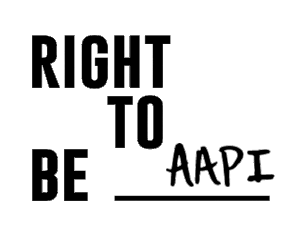
In larger organizations and businesses, investigations are often conducted by Human Resources departments.
In smaller ones, they may be conducted by consultants (often lawyers) or by other members of staff (such as management or board members).
Investigators typically try to keep things as confidential as possible to avoid further eroding employee morale. But in practice, often very little can remain confidential since investigators are ultimately trying to uncover and uproot harassment. What you report about your experience may be shared – in whole or in part – with other team members who are called in as witnesses. That can include the person who harassed you.

Investigations should be short: ideally 1-2 weeks at most (this is good for the employer and the person who was harassed).
In practice, though, they can last longer depending on:
1. How much time the investigator commits (sometimes investigators contracted from outside the organization take a while to get started or split their time among multiple clients).
2. How complicated the case is (the more incidences of harassment that you report or that the investigator uncovers in the process, the longer the investigation will take).
At the end of an investigation, only the people directly involved may learn the result, and more often than not, the result is “inconclusive.” Harassment tends to be hard to prove from a legal standpoint.

The more detail, the better. We recommend preparing your report with as much information as possible. Try to include answers to as many of the following questions as you can:
– Where and when did it happen?
– What was said and/or done?
– Who else was there? Who else became aware afterwards (if anyone)?
– How did it make you feel? Did it result in any impact on your work performance, relationships, confidence, creativity, etc.?
– Is there any record of the harassment? This could include documentation of the actual harassment (for instance, an email). It can also consist of confirmation of details of the harassment (for instance, a due date for an assignment that is relevant to your story).
– Are you aware of other incidents of harassment related to this one? Do you have knowledge that this person harassed anyone else?
The investigator may ask you for these details or others, but don’t count on it. It might seem weird that we’re telling you investigators may not ask for details – after all, they’re investigating, right? Well, here’s why: they may avoid probing further so that they don’t open up a “Pandora’s box” of harassment at your workplace, since they would be accountable for investigating it all. They may try to keep their job as simple as possible.
So, it’s in your best interest to come prepared with as much detail as possible about as many incidences as you’re aware of. Create a written report with your story and bring two copies to your investigation – one for you and one for the investigator.
When speaking with investigators, it’s important to appear calm, collected, and in control. That doesn’t mean you can’t cry or show emotion. But it is crucial not to lie, lash out at the investigator, or rant about your employer or the investigation. If you exhibit these behaviors, the investigator might assess you as an “unreliable narrator,” and that could affect your case.
When asked a question, stick to the facts. This is where your written report can help you. Trauma can erode our memories, leaving us to remember some things in technicolor and others not at all. Data and documentation can help to support our memories. If you don’t know the answer to a question, tell them you don’t know. You can always get back in touch with them afterward if you remember.
The investigation may be triggering for you. Not only will be you asked to recall traumatizing things, but you will also be questioned about them and asked to rationalize or defend your own behaviors and reactions. Many people who experience harassment already (consciously or subconsciously) blame themselves for what happened, so this experience can bring up a lot of emotions. Don’t be afraid to step out for a bathroom break, where you can take a few deep breaths and get grounded to calm your nervous system a bit. Remind yourself that you didn’t do anything wrong, and by speaking out about what happened to you, you are making a safer and more welcoming workplace for everyone.

When showing up to the investigation, consider these strategies to help you get through the process:
– Wear something professional that makes you feel confident and comfortable.
– Get grounded by taking some deep breaths before getting started.
– Consider bringing a support item. Some people might bring a photo of a loved one to help them remember what matters, while others might bring a meaningful small object like a crystal.
– Bring water and a snack.
– Have a support team in place, and make sure they know that today is the big day so that they can support you before, during, and after the investigation.
– Have a post-investigation plan. What will you do afterwards? We can’t emphasize enough how much we don’t recommend just going straight back to work. Even if you only have ten minutes to yourself before you have to return to work, how can you care for yourself? Call a friend? Journal about your feelings? Sit in a safe place – like out in nature or in the sun – and remind yourself that you are safe?


